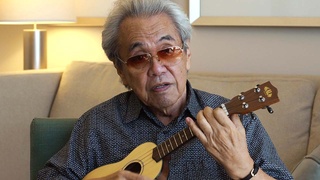Interviews
Getting on Kohaku (Japanese)
(Japanese) I’ve been watching Kouhaku since when I was born in 1982, my relatives in Japan would unfailingly send me a video tape of the performance. My family and I would always get together and watch the video tape, and so I really feel that the program called Kouhaku is of a significant importance to me. That said, my first objective when I debuted, was naturally to get on Kouhaku. My grandmother was always telling me, the artists that were able to get on Kouhaku that year, it was proof that they were successful that year, so I thought, I really need to be successful, so I can get on Kouhaku, too. I even received a New Artist Award, my first year being on Kouhaku. In one way or another, I really wanted my mother and grandmother to be there with me, so I had an image of my grandmother’s face on the clothes that I wore. My mother was watching from the audience, so I can say that my grandmother was there with me. That was the situation, so it really became a good memory for me.
Date: March 30, 2010
Location: California, US
Interviewer: Yoko Nishimura
Contributed by: Interview by Watase Media Arts Center, Japanese American National Museum. Courtesy of Japanese American Cultural & Community Center
Explore More Videos


Postwar school-life
(b. 1930) Half Japanese and grew up in both Japan and the United States.

On Challenging Institutions
(1938-2020) Japanese American attorney and civil rights activist

Pop and Balls
(1938-2020) Japanese American attorney and civil rights activist

Re-examining Identity
(1941-2018) Japanese Canadian photojournalist and activist

How he got on the All-Navy show on Ed Sullivan
(b. 1934) Ukulele player from Hawaii





Conflicted about immigrating to America (Japanese)
(b. 1925) War bride

Defining "Nikkei"
(1941-2018) Japanese Canadian photojournalist and activist

Unique Identity from Having Multiple Backgrounds
(b. 1938) Philipines-born hikiagesha who later migrated to the United States.

Growing up Japanese in Hawaii
(b. 1952) Former banking executive, born in Hawaii

